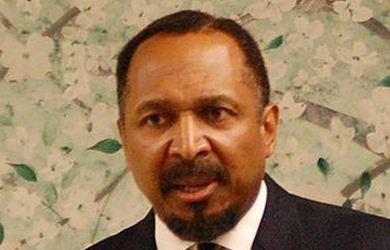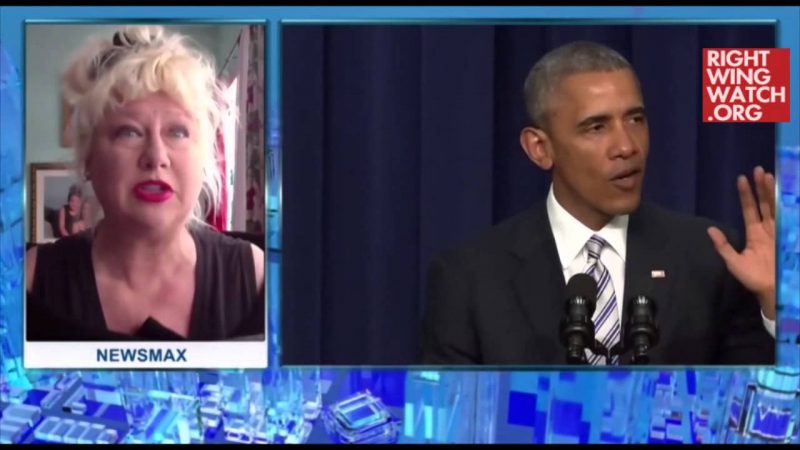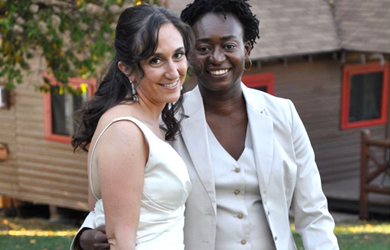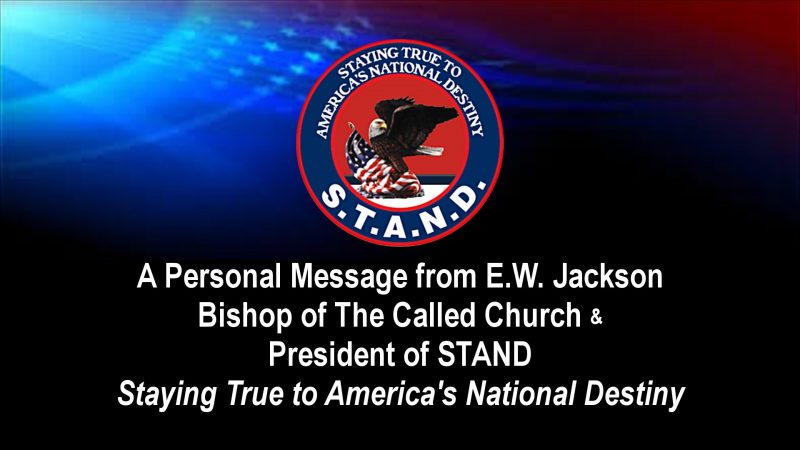Harry Jackson is out with a column today accusing gay rights supporters of seeking “to hijack not only the moral authority of the Civil Rights Movement, but also the legal arguments which liberated minorities from centuries of legalized oppression and discrimination.” He specifically takes issue with the fact that marriage equality supporters cite the Fourteenth Amendment and Loving v. Virginia, which found anti-miscegenation laws to be unconstitutional.
Jackson explains that same-sex couples don’t have a right to marry because “‘marriage’ means what it has always meant in America: the union of one man and one woman,” and cites a Nevada ruling which argued that marriage laws aren’t discriminatory because a gay person has the right to marry someone of the opposite sex.
Ironically, those two arguments were exactly those used by supporters of laws banning interracial marriage.
Peggy Pascoe in “What Comes Naturally: Miscegenation Law and the Making of Race in America” writes that up until the 1960s white society and the white-dominated legal system “believe[d] that the interracial marriage was unnatural” and “assumed that the marriage of one White man to one White woman was the only kind of marriage worthy of the name.”
Not only did they not consider interracial marriage to be a “marriage,” but they also argued that anti-miscegenation laws were not discriminatory because they applied to people of every race and did not target one race in particular.
Despite this history about marriage laws, Jackson concludes his column by insisting that “the notion that homosexuals are being denied equal protection under the law becomes absurd.”
From the very beginning, homosexual “marriage” activists have sought to hijack not only the moral authority of the Civil Rights Movement, but also the legal arguments which liberated minorities from centuries of legalized oppression and discrimination.
After decades of aggressive activism, the common sense understanding of marriage has become almost hopelessly mired in incomprehensible legal terminology. It becomes difficult for everyday observers to navigate the convoluted logic homosexual activists employ as they attempt to remake one of civilization’s oldest institutions. The argument that redefining marriage to include homosexual couples is only “fair” rests on a specious interpretation of the equal protection clause of the Fourteenth Amendment. The clause reads as follows:
No State shall make or enforce any law which shall abridge the privileges or immunities of citizens of the United States; nor shall any State deprive any person of life, liberty, or property, without due process of law; nor deny to any person within its jurisdiction the equal protection of the laws.
As most of us know, the Fourteenth Amendment was enacted just before the end of the Civil War in response to the Black Codes of the South. The Black Codes were various state laws which, among other things, prevented blacks from owning property and imposed harsher penalties for crimes on blacks than on whites. The Fourteenth Amendment clarified that these laws were unconstitutional, and that the government was obligated to protect the rights of all citizens equally.
So what about the “right” to marry? Lesbian, Gay, Bisexual and Transgender (LGBT) activists argue that the state is abridging their privileges, often citing Chief Justice Earl Warren’s words in Loving v. Virginia, the 1967 decision that overturned state bans on interracial marriage: “The freedom to marry has long been recognized as one of the vital personal rights essential to the orderly pursuit of happiness by free men.”
I agree with Justice Warren that marriage is a central ingredient in the pursuit of happiness. I disagree with LGBT activists about what “marriage” is. And it is very hard to have a reasonable or productive discussion when the two sides cannot agree on the definition of a central term. You and I may agree that it should be legal to walk a dog in a particular public park. But you may think that the term “dog” includes only domesticated members of the Canis lupus familiaris species, and I may think that the term “dog” can include large gray wolves. You may argue that “dog” should be defined by the laws and traditions that have governed dog ownership for generations, and I may feel that such an approach in unfair to people who want to walk wolves in the park. The point is that we cannot get anywhere until we agree on what a “dog” is.
Homosexuals are not being denied “marriage” rights any more than wolf enthusiasts are being denied dog-ownership rights. Last November, a federal appeals court in Nevada pointed out homosexuals are not, in fact, being denied the right to marry, as the term “marriage” has been long understood. A lesbian couple had sued the state, seeking to overturn Nevada’s ban on gay marriage under the Fourteenth Amendment. Wrote Judge Robert Jones:
Like heterosexual persons, they [homosexuals] may not marry members of the same sex. A homosexual man may marry anyone a heterosexual man may marry, and a homosexual woman may marry anyone a heterosexual woman may marry.
Judge Jones went on to point out that homosexuals have little cause to identify with historically oppressed minorities in the United States, observing that, “Homosexuals have not historically been denied the right to vote, the right to serve on juries, or the right to own property.” Judge Jones starts with the assumption, as we all should, that “marriage” means what it has always meant in America: the union of one man and one woman. If we begin with that reality, the notion that homosexuals are being denied equal protection under the law becomes absurd.








